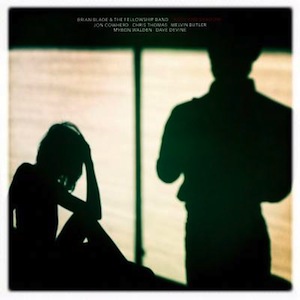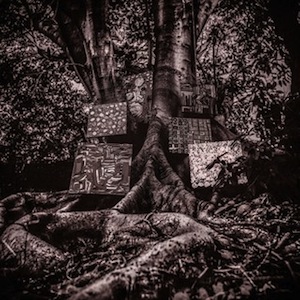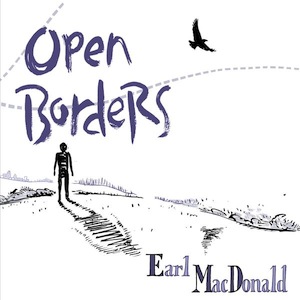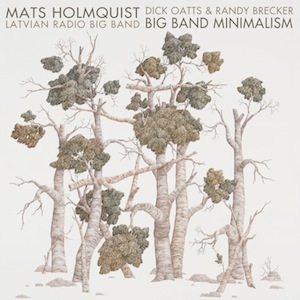Label/Year: Blue Note Records, 2017
Lineup – Brian Blade: drums; Myron Walden: alto saxophone, bass clarinet; Melvin Butler: tenor saxophone; Dave Devine: guitar; Jon Cowherd: piano, keyboards; Chris Thomas: bass;
American drummer Brian Blade has conquered many jazz fans with his sophisticated technique, open nature, and instinctual rhythm. His unique touch, never too loud and never too soft, has played a crucial role in projects of likes such as Kenny Garrett, Joshua Redman, Mark Turner, David Binney, and Wayne Shorter. He also built an amazing reputation as a leader of the Fellowship Band, a 20-year endeavor that normally comprises two saxophones, one or two guitars, piano/keyboards, and bass.
Body and Shadow is Blade’s fifth CD with this band, whose regular members include saxists Myron Walden and Melvin Butler, pianist/keyboardist Jon Cowherd, and bassist Chris Thomas. The novelty here is guitarist Dave Devine, a sure-footed Denver-based rock guru, who makes his debut in the group after Daniel Lanois, Kurt Rosenwinkel, Marvin Sewell, and Jeff Parker have occupied the position in the past.
Embracing identical methodologies as in the previous albums, yet cutting a bit in the improvisations in detriment of a more crafted textural work, the band opens with “Within Everything”, a melodious, unfussy piece that carries the lightness of a pop song entwined with the warm melancholy of Americana. I’m quite sure that both Joni Mitchell and Oasis would approve its atmosphere.
The title track was divided into three parts according to the parts of the day. “Body and Shadow (Night)” upholds a flowing chamber jazz quality, enhanced by bass clarinet melodies (expertly handled by Walden), low-toned key vibes, and bowed bass. The guitar, whether translucent or distorted, fingerpicked or strummed, fits perfectly within the uncongested musical scenario. Conversely, the ‘Morning’ part increases the electrified sounds, getting a tangy indie rock bite, while the ‘Noon’ part is a stagnant electro-acoustic episode with emphasis on Devine’s guitar.
Obeying to a 7/4 time signature, “Traveling Mercies” is arranged with compassionate melodies and harmonies that bring some sadness attached. It rekindles the flame during the chorus, in a successful combination of genteel jazz and untroubled folk-rock, as if Joshua Redman has fused with Crosby, Stills, and Nash.
The resplendent Christian hymn “Have Thine Own Way, Lord” was subjected to two opposite treatments. The first was ‘sung’ exclusively by Cowherd's harmonium, and the second devotionally orchestrated according to Blade’s categorical arrangement.
The syncopated rhythms that initiate “Duality” are also velvety. They are an integral part of a magical soundscape, which, even shifting along the way, maintains both the consistency and stability. The improvisations are further extended here, beginning with Cowherd, who pulls out interesting melodic lines over exuberant chord changes. Giving the best sequence to a short bridge, packed with horn unisons and counterpoint, it’s Walden who, taking advantage of the recently appeared balladic tones, makes his alto saxophone cry and beseech intensely within an outstanding, repeatedly motivic post-bop language.
Holding an absolute control of tempo, “Broken Leg Days” closes the session, flowing elegantly while Blade's drumming brings together simple rudiments and dynamic rhythmic accentuations.
Brian Blade, as stylish and generous as ever, continues to persuade, and Body and Shadow is another great personal achievement that also serves to commemorate two decades of a tight musical bond.
Grade A-
Favorite Tracks:
03 - Traveling Mercies ► 07 - Duality ►09 - Broken Leg Days








































